Spring 2003 Convocation
Honorary Doctorates
Atom Egoyan, QC
BA (University of Toronto)
Doctor of Letters
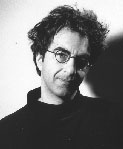 |
|
Atom Egoyan was born in Cairo, Egypt, in 1960, and moved with his family to Canada in 1963, settling first in Victoria. As an undergraduate in Toronto, Egoyan made his first film, Howard in Particular. Egoyan's first feature film, Next of Kin (1984), perked up the ears of critics and festival programmers, and with his second feature, Family Viewing (1987), Egoyan began to be spoken of as a major new Canadian film director. His subsequent films include The Adjuster (1991), Exotica (1994), and The Sweet Hereafter (1996), which won the Cannes Grand Prix du Jury and was nominated for two Academy Awards, including one for Best Director. His latest film, Ararat (2002), a historical drama about the massacre of Armenians in the Ottoman Empire has been the focus of great acclaim and controversy.
Egoyan's talents don't stop at filmmaking. In 1996, he directed Salome for the Canadian Opera Company, and in 1998, he directed and wrote the libretto for two experimental operas: Rodney Sherman's Elsewhereless and Gavin Bryar's Dr. Ox's Experiment. He played guitar on a solo album by The Tragically Hip's Gord Downie. Egoyan has also had art shows at Montreal's Musée d'art contemporain, Toronto's Powerplant and in Europe.
Georges Brossard, CM
BA (Collège St-Laurent), LLL (University of Ottawa)
Doctor of Science
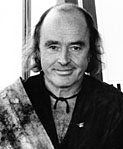 |
|
Georges Brossard is the son of Georges-Henri Brossard, founder of the city -- now the borough -- that bears his name. He practiced law from 1966 to 1978 when he retired, at age 38, to pursue his passion for entomology.
He embarked on a 24-year search for insects that took Brossard and his wife, Suzanne, to some 130 countries where they collected over 600,000 specimens. He quickly became entomology's most successful popularizer. Brossard says that bugs "produce honey, silk, wax, shellac, and dyes, and pollinate our plants. Yet, they are the most hated and misunderstood, to the point where we hunt them down with insecticides and fungicides."
Brossard founded the Montreal, St. John's Newfoundland, New Orleans and Shanghai Insectariums, and the Naturalium in Québec City. In 1985, he created and produced a 20-part television series titled Mémoires d'insectes. In 2000-2001, he starred in a 26-week series called Insectia, reaching some 350 million television viewers in 160 countries every week. He also hosted the Bug Man series on the Discovery Channel.
David Levy
BA (Acadia University), MA (Queen's University at Kingston)
Doctor of Science
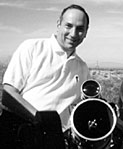 |
|
At age 12, forced to stay at home with a broken arm, David Levy read a book about the solar system and decided he wanted to become an astronomer. A few years later, he saw his first comet, Ikeya-Seki, which started his search for others.
Levy became an international celebrity in 1994 when, with world-renowned astronomers the late Eugene Shoemaker and Carolyn Shoemaker, he discovered the comet Shoemaker-Levy 9. When the comet hit Jupiter, it created a mushroom cloud larger than Asia. As no one had ever seen a comet crash into a planet, the images of these collisions became front-page news and forever changed our perception of our place in the solar system.
Levy first studied English literature at Acadia University. A prolific writer, he is the author or editor of 29 books that span historical, cultural, literary and scientific domains, and is the science editor of Parade Magazine.
Eugenie Carol Scott
BS, MS (University of Wisconsin-Milwaukee), PhD (University of Missouri-Columbia)
Doctor of Science
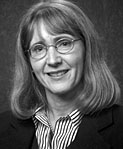 |
|
Eugenie C. Scott is a scholar, researcher and activist in the creation/evolution controversy. A human biologist, her career focus is medical anthropology and skeletal biology. She is currently Executive Director of the National Center for Science Education, as well as being president of the American Association of Physical Anthropologists.
Scott taught at many American universities, and served as chair of the Ethics Committee of the American Anthropological Association, and the Anthropology Section of the American Association for the Advancement of Science (AAAS).
Scott has worked diligently to advance scientific methodologies to the public at large and to educators. Believing that the teaching of evolution is a necessary part of the science curriculum, Dr. Scott strives to promote and to improve its teaching in schools; opposing the advocacy of scientific creationism and other religiously based views in science classes.
Julie Payette, CQ, FCAE
BEng (McGill), MSc (University of Toronto)
Doctor of Science
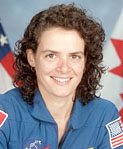 |
|
Julie Payette -- engineer, musician, athlete, pilot -- was selected by the Canadian Space Agency as one of four astronauts from 5,330 applicants in 1992. She was assigned to the STS-96 mission with the space shuttle Discovery and flew in 1999 to become the first Canadian to participate in an International Space Station assembly mission. Aboard Discovery, Payette operated the Canadarm to deliver four tons of logistics and supplies to the ISS. In September 2000, She was named Chief Astronaut for the Canadian Space Agency.
In preparation for her space assignment, the Montreal-born Payette learned Russian and logged over 120 hours of reduced-gravity parabolic flight time. Payette obtained her captaincy on military jets at the Canadian Air Force Base in Moose Jaw, Saskatchewan, and flies regularly with the training squadron. She reported to the NASA Johnson Space Center in Houston, Texas, in August 1996, to begin mission specialist training.
Payette held a variety of positions as engineer or scientist in industrial laboratories, including IBM Research Laboratory (Zurich), Bell Northern Research and IBM Canada.
Laurent Beaudoin, CC, OQ, CA, FCA
BA (Ste. Anne College), MCom (Université de Sherbrooke)
Doctor of Laws
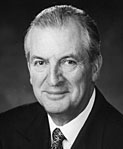 |
|
Laurent Beaudoin is synonymous with Bombardier, the corporation that can get you where you want to go, by train, plane, seadoo or snowmobile. He joined Bombardier as Comptroller in 1963 and the following year was appointed General Manager in 1964 and President in 1966. He served as Chairman and Chief Executive Officer of Bombardier Inc. from 1979 until 1999 when he accepted the post of Chairman of the Board and of the Executive Committee.
During his tenure at Bombardier, Beaudoin directed its growth from a small family-owned company to a multi-billion dollar manufacturing conglomerate with a presence on five continents.
Beaudoin has an extraordinarily long list of awards and is in Canada's Aviation Hall of Fame. Beaudoin is a board member of The Ireland Fund of Canada, Montreal Chapter, and the Canadian Irish Studies Foundation. In 2001, Laurent Beaudoin was named a Companion of the Order of Canada and an Officer of the Ordre Nationale du Québec.
Steven Weinberg
AB (Cornell University), PhD (Princeton University)
Doctor of Science
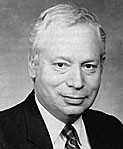 |
|
Steven Weinberg, Nobel Laureate, renowned writer and theoretical physicist, is the Josey Regental Professor of Science at the University of Texas at Austin and the Morris Loeb Visiting Professor of Physics at Harvard University.
Steven Weinberg is arguably the premier theoretical physicist alive today. In 1979 he shared the Nobel Prize in Physics with Abdus Salam and Sheldon Glashow for his 1967 discovery of what has come to be known as the Standard Model of particle physics, which currently is the definitive theoretical understanding of all non-gravitational phenomena.
The author of four classic physics textbooks, Weinberg has begun an often controversial dialogue with social scientists and others about the very nature of scientific knowledge and of the role of religion in society, as seen in his recent collection of essays, Facing Up -- Science and its Cultural Adversaries.
Howard Alper, OC
BSc (Sir George Williams University), PhD (McGill)
Doctor of Science
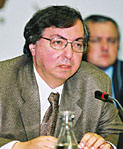 |
|
Howard Alper is renowned for research of catalysis in chemistry. In 1975, he started teaching at the University of Ottawa, became Chair of the Department of Chemistry, and in 1997 he was appointed Vice-Rector, Research.
Among his wide range of contributions to society are the development of a key component of soft contact lenses and a method to produce anti-inflammatory drugs, such as ibuprofen, without generating unwanted chemical compounds. Alper has also made important discoveries and improvements in the areas of petrochemicals and polymers, including an efficient way to make petroleum into compounds that are now used to make polyesters for fabrics.
Alper was named a Fellow of the Royal Society in 1984. His many awards include the first Gerhard Herzberg Canada Gold Medal in Science and Engineering (2000). In 1999, he was named an Officer of the Order of Canada and in 2002, an Officer of the National Order of Merit, by France.
The Honourable Mr. Justice Frank Iacobucci
BCom, LLB (University of British Columbia), LLM (Cambridge University)
Doctor of Laws
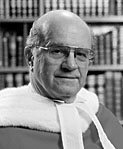 |
|
Frank Iacobucci, public servant, senior university administrator, esteemed teacher, renowned scholar and lawyer, is a Puisne Justice of the Supreme Court of Canada.
Iacobucci joined the University of Toronto's Faculty of Law in 1967, where he served as Dean of the Law Faculty and as the University's Vice-President and Provost.
In 1985, he accepted the posts of Deputy Minister of Justice and Deputy Attorney General for Canada, serving until 1988, when he was appointed Chief Justice of the Federal Court. He was named to the Supreme Court of Canada in 1991. In this multi-faceted public engagement, Justice Iacobucci has served with intelligence, passion, wisdom, and a sense of humour.
Jacques Godbout, C.Q.
BA, MA (Université de Montréal)
Doctor of Letters
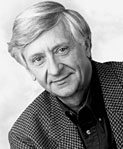 |
|
For the last 40 years, Jacques Godbout has been one of the most respected and admired artists and intellectuals on the Québécois and Canadian scenes.
Born in Montreal in 1933, Godbout completed an MA in Literature at the Université de Montréal, taught for several years in Ethiopia, then joined the National Film Board from 1958 to 1996. He has made 34 films -- writing and/or directing -- from documentaries (Vivre Sa Ville, 1968; Alias Will James, 1988) to feature films (Kid Sentiment, 1967; IXE-13, 1971).
Godbout has published 24 books to date and his 1967 novel, Salut Galarneau! is regarded as one of the great classics of Québécois and Canadian literature.
Godbout was named Chevalier de l'Ordre national du Québec and has received many awards, including the Cannes film festival Eurofipa Prize in 1994.
Ismail Serageldin
BSc (Cairo University), MRP, PhD (Harvard University)
Doctor of Science
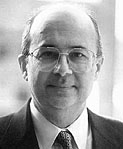 |
|
As a special advisor and former director at the World Bank, Ismail Serageldin put water management on the world's international development priorities. He helped to found the World Water Council and Global Water Partnership. He has written or contributed to 50 books and some 200 papers, book chapters and articles on topics ranging from biotechnology to Shakespeare.
Joseph S. Renzulli
BA (Glassboro State College), MEd (Rutgers), EdD (University of Virginia)
Doctor of Laws
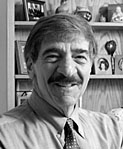 |
|
Joseph S. Renzulli's academic career has flourished at the University of Connecticut where he is Neag Distinguished Professor of Educational Psychology and founding director of The National Research Center on the Gifted and Talented, built around a consortium of three universities: Connecticut, Virginia and Yale. The Center is funded by the United States Office of Education.
Renzulli is the author of the most widely adopted curriculum model in the education of highly able students. The Enrichment Triad Model anticipated by decades the importance of school curriculum, building upon the interests and inquisitiveness of the learner. His School-Wide Enrichment Model remind all who are concerned about the quality of education for highly able students that all learners must participate in the process of talent development.
Father Fernand Lindsay, CSV, CM OQ
BA (Université de Montréal)
Doctor of Music
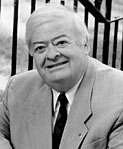 |
|
Fernand Lindsay was born in 1928 in Trois-Pistoles, Quebec. At age five, young Fernand began piano lessons followed by clarinet and organ and at 15, Fernand began studies at the Joliette Seminary, well known for the two things he loved most: music and teaching.
Father Lindsay was appointed director of Les Jeunesses musicales de Joliette in 1957, and in 1962 established the Festival-concours de musique, and the Camp musical de Lanaudière and the Centre culturel de Joliette in 1967.
In 1977, an enthusiastic reception to the Charles Dutoit-led Montreal Symphony Orchestra at the Joliette Cathedral prompted Lindsay to offer a series of eight concerts the following year. The Lanaudière International Festival was born and each year the festival welcomes the world's most prestigious musicians and puts the small town of Joliette, Quebec, on the international music map.
Right Honourable Herb Gray
BCom (McGill), LLB (Osgoode Hall)
Doctor of Laws
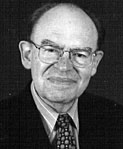 |
|
When Herb Gray resigned from Parliament in 2002 he was the longest serving MP in the House, having first been elected as the Liberal representative for Windsor, Ontario, in 1962. In his forty years in Ottawa, he Minister of National Revenue, Minister of Consumer and Corporate Affairs, Minister of Industry and many other positions both in government and in opposition. He was given the rare title of Right Honourable by the Governor General last year.
Emeritus Professors
Pierre R. Bélanger, FIEEE, FCAE
BEng (McGill), SM, EE, PhD (MIT)
Bélanger joined McGill in 1967 as an associate professor, and was promoted to full professor in 1976. Quickly becoming world-renowned in the field of control theory. Bélanger he served as Chair of the Department of Electrical Engineering from 1978 to 1984, after which he was appointed Dean of the Faculty of Engineering. In 1995, he became Dean of Graduate Studies and Research, as well as Vice-Principal (Research). He retired in May 2002.
Marta Bunge
BA (Instituto Nazionale della Previdenza Sociale, Buenos Aires), MA, PhD (University of Pennsylvania)
Bunge was born in Argentina where she studied philosophy and mathematics. She joined McGill as a postdoctoral fellow in 1966, was appointed an assistant professor in 1969, and an associate in 1977. In 1985 she became full professor. Bunge was the first category theorist in Canada, and she has contributed to logic, algebra, differential geometry, functional analysis, mathematical linguistics and theoretical computer science.
Dr. Keith Newton Drummond, FRCP(C)
BA, MDCM (McGill)
Dr. Drummond trained in pediatrics at the Montreal Children's Hospital and the Rainbow Babies and Children's Hospital in Cleveland. He was the first pediatric nephrologist in Canada. He was appointed Professor of Pediatrics in 1972 and, from 1974 to 1986, served as Physician-in-Chief at the Montreal Children's Hospital and Chairman of McGill's Department of Pediatrics.
Jacob Kalff
BSA, MSA (University of Toronto), PhD (Indiana University)
Kalff was the first limnologist to work in Quebec. His hard work at McGill shaped the Department of Biology, and he has trained over 40 graduate students and post-doctoral fellows. Kalff was instrumental in establishing and operating the Limnology Research Station at Lake Memphremagog for over 25 years.
Anthony A.J. Marley
BSc (University of Birmingham), PhD (University of Pennsylvania)
Part of the Department of Psychology for more than 30 years, Marley, a leading researcher in mathematical psychology, initially studied mathematics. He joined McGill as an Assistant Professor in 1969, was promoted to Full Professor in 1981 and served twice as Chair of the Department of Psychology from 1992 to1997 and from 1998 to 2001.
Nicholas C. Rumin
BEng, MSc, (McGill), PhD (McGill)
In 1967, Rumin joined McGill's Department of Electrical Engineering as an assistant professor and was promoted to full professor 1980. From 1988 to 1998, he served as Chair of the Department of Electrical Engineering. The McGill Digital Test System (MDTS), which he developed in 1977, has revolutionized undergraduate electronics teaching in the laboratory and been widely copied throughout North America.
Stephen Allan Scott
BA (McGill), BCL (McGill), DPhil (Oxford)
For three decades, Scott has participated in public issues in Canada and has often appeared before the Supreme Court of Canada. He conducts research in public and commercial law, focusing on constitutional law. He started teaching at McGill as a lecturer in 1967, the same year he was admitted to the Bar of Quebec, became associate professor in 1971, and full professor in 1977.
David Charles Smith FRCA, FRCT
BA, BEd (McGill), PhD (University of London)
In 1966, Smith became an assistant professor in the newly formed Faculty of Education. Two years later he was an associate professor, then full professor in 1974. His research explored education for international understanding and peace. He served as the Faculty's Associate Dean (Academic) from 1981 to1983 when he took up the position of Dean of the Faculty of Education, a post he held until 1991.
Martin E. Weber
BSE (Princeton University), ScD (MIT)
Weber was appointed as an assistant professor in Chemical Engineering in 1965, and promoted to full professor in 1976. His research is on the application of transport processes. Weber developed and taught the first engineering course in Canada to use the Personalized System of Instruction (PSI), which has given generations of undergraduates a firm foundation in the experimental solution of problems.
Emeritus Librarian
David Sullivan Crawford
BA, Postgraduate Diploma in Library Studies (Queen's University of Belfast)
Crawford's first position at McGill was Assistant Medical Librarian. In 1984 he was promoted to the rank of Full Librarian and appointed Health Sciences Librarian in 1991. In 1992, he was awarded the Career Recognition Award for Outstanding Librarianship. Crawford was instrumental in establishing an exchange program between China Medical University, Shenyang, People's Republic of China, and the Health Sciences Library of McGill University.

